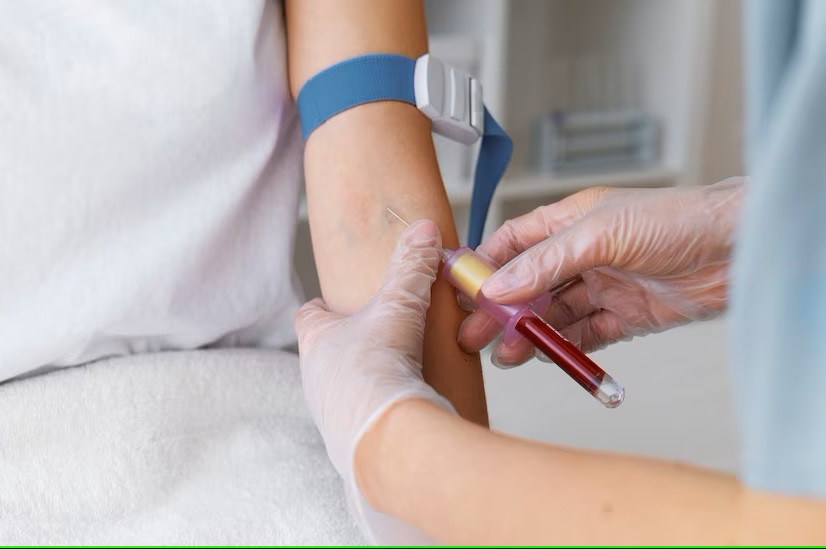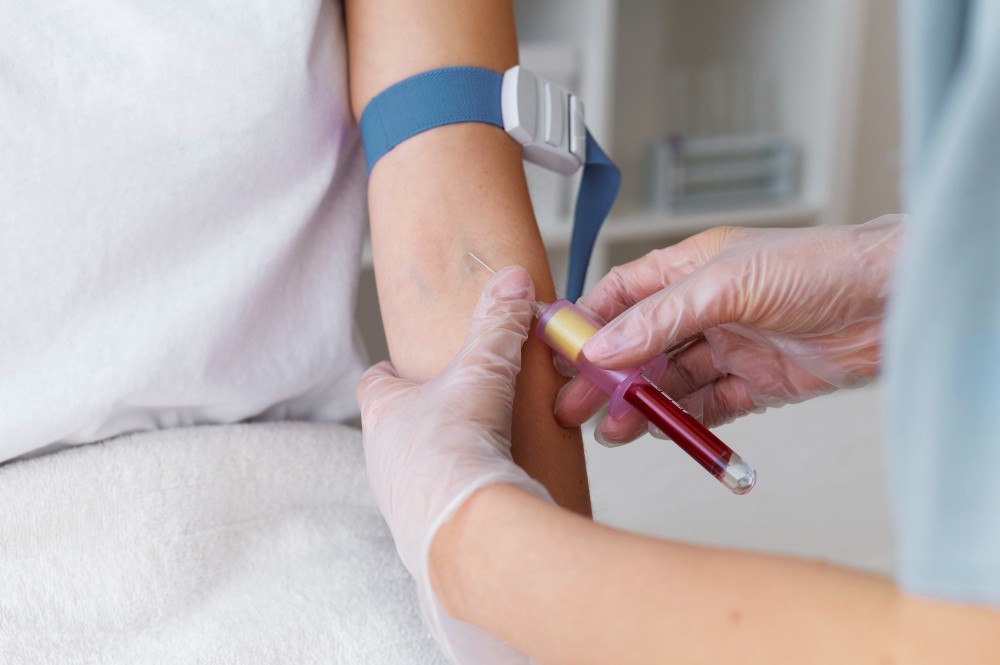Before donating blood, you will be asked to fill out a form with your personal data and medical history. There are a series of requirements that must be met to make you eligible for a blood donation.
Blood donation requirements
Generally, blood donation requirements worldwide are almost the same. According to PMI (Indonesian Red Cross), to be able to donate blood, you must meet the following requirements:
- Physically and mentally healthy
- Age 17 to 60 years for first-time donors, or up to 65 years for regular blood donors. Donors aged 65 years and older also need to consult a doctor and might need to stop donating blood based on the doctor's consideration
- Minimum body weight of 45 kg
- Blood pressure within the range of systolic (100–180) and diastolic (70–100)
- Hemoglobin level of 12.5 g/dL
- Minimum interval since the last donation of 2 months
Types of diseases that prevent you from donating blood
If you are currently experiencing flu, are pregnant, or have just undergone surgery, you may be temporarily ineligible to donate blood. However, if you have the following health conditions, you are not allowed to donate blood indefinitely.
Cancer
You cannot donate blood if you have cancer because there is a theoretical risk that cancer cells may be present in the blood. Although there is no evidence to support this claim, as a precaution, cancer patients are not allowed to donate blood.
Some exceptions may be made if you have completely recovered from basal cell skin cancer or if you have finished treatment for precancerous conditions. For the safety of blood recipients, it is best to discuss the possibility of blood donation further if you have cancer.
Heart disease
Not all heart disease patients are prohibited from donating blood. However, if you have had a heart attack, stroke, heart failure or are currently taking medications (such as blood thinners), you cannot donate blood.
Other heart conditions that make you ineligible to donate blood include:
- Undergoing heart surgery, such as coronary bypass surgery or surgery for non-congenital heart conditions
- I am currently undergoing treatment for heart rhythm disorders
- Experiencing symptoms such as shortness of breath, dizziness, or severe weakness
Active respiratory diseases
Patients with asthma can donate blood as long as they are in good health. However, if they are experiencing shortness of breath or limitations in activity, they cannot donate blood.
Additionally, individuals experiencing infections such as flu, active TB, or pneumonia cannot donate blood. Blood donation can only be done after the patient has fully recovered from their illness and has completed treatment. You need to consult a doctor if you have a history of the above diseases and wish to donate blood.
HIV
Individuals with HIV are not allowed to donate blood. Blood from someone infected with HIV can endanger the recipient and spread the HIV virus to the blood recipient.
Sexually transmitted infections (STI)
You are not allowed to donate blood if you have a sexually transmitted infection (STI). Blood from someone infected with an STI can spread the infection to the recipient.
Before donating blood, you need to undergo screening for sexually transmitted diseases such as hepatitis B, hepatitis C, syphilis, and others.
If you want to donate blood but have a history of other diseases, you can either visit a doctor or make use of the consultation features that are available in the Ai Care application by downloading the Ai Care application from the App Store or Play Store. The doctor will help determine whether you are eligible to donate blood or not.
Looking for more information about other diseases? Click here!
- Sean Edbert Lim, MBBS
American Red Cross. Requirements by Donation Type. Available from: https://www.redcrossblood.org/donate-blood/how-to-donate/eligibility-requirements.html
UTD PMI Provinsi Jakarta. FAQ Tentang Donor Darah. Available from: http://utdpmidkijakarta.or.id/faq/tentang-donor-darah
Cancer Research UK (2023). Can I donate blood if I have had cancer?. Available from: https://www.cancerresearchuk.org/about-cancer/coping/physically/donating-blood
British Heart Foundation. What does giving blood involve, and can you give blood if you’re a heart patient?. Available from: https://www.bhf.org.uk/informationsupport/heart-matters-magazine/medical/giving-blood
Caitlin Geng (2022). Can a person donate blood if they have COPD?. Available from: https://www.medicalnewstoday.com/articles/can-you-donate-blood-if-you-have-copd
HIV.gov (2022). How Is HIV Transmitted?. Available from: https://www.hiv.gov/hiv-basics/overview/about-hiv-and-aids/how-is-hiv-transmitted/
WebMD (2023). What to Know About Donating Blood if You Have an STD. Available from: https://www.webmd.com/genital-herpes/what-to-know-about-donating-blood-with-an-std











